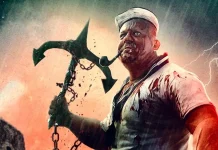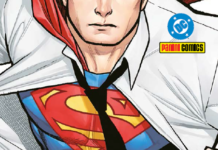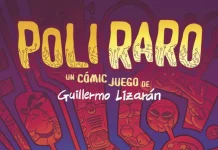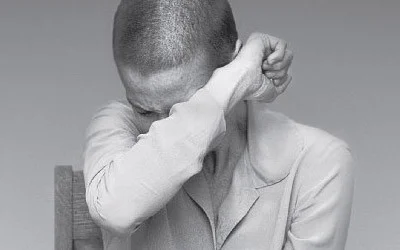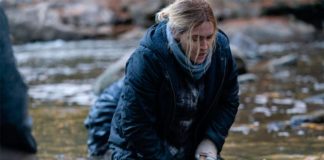Andrei Konchalovski está cosechando éxitos con Paradise a lo largo de Europa y ayer el Teatro Jovellanos estaba a rebosar para ver la última película del veterano ruso, excolaborador de Tarkovski.
Paradise es una historia a tres bandas, por un lado, conocemos a Philippe, un colaborador francés de la Alemania nazi, con mano de hierro y con pulso firme a la hora de determinar quién poblará los campos de concentración alemanes. Por otro lado, Olga, una aristócrata rusa acusada de encubrir a niños judíos en París y Helmut, otro aristócrata, alemán, que colabora abiertamente con los nazis, es miembro de las SS y ansía crear el paraíso nazi sobre la Tierra.
Estas tres historias se van entrelazando, con un peso proporcionalmente mayor en la de Olga y Helmut, puesto que coinciden, uno como jefe y otra como interna, en el campo de concentración. La película nos muestra el testimonio de los tres frente a un interlocutor desconocido, donde van relatando sus experiencias en 1942.
Es una película en blanco y negro con un peso muy importante en los actores, sobre todo en Yuliya Vysotskaya y Christian Clauss, dado que está grabada con planos fijos, fríos, que dejan el protagonismo a la interpretación. El guion está solidamente construido, aunque en algún caso confunde al espectador, dejando una sensación onírica en los testimonios a cámara que se arregla con el grandísimo trabajo de los actores.
No es una película sobre el holocausto y, aunque juzga, pretende más bien contar una historia que denunciar los hechos, dado que las secuencias dentro del campo son escasas y con poco poder narrativo en toda la película. Las personas por encima de las ideas parece ser el lema.
Un acierto dejar a los actores hablar en su idioma original y que se mezclen alemán, francés y ruso. Sin duda, una buena película que afronta una época dramática desde un punto de vista diferente.
Paradise, Andrei Konchalovski (Rusia). Official Section. FICX (English)
Winner of the Silver Lion to best director in Venice 2016.
Andrei Konchalovski is achieving success with Paradise throughout Europe, and yesterday, at the Teatro Jovellanos, there was no empty seat to watch the movie of this veteran Russian director, ex-collaborator of Andrei Tarkovski.
Paradise is a three-way story. On the one hand, we meet Philippe, a French collaborator of Nazi Germany, deciding with an iron and firm hand who will populate the German concentration camps. On the other hand, Olga, a Russian aristocrat, accused of protect Jewish children in Paris, and Helmut, another German aristocrat, who collaborates openly with the Nazis as member of the SS and to create a Nazi paradise on Earth.
These three stories are intertwined, proportionally with more weight in Olga and Helmut, from the moment both run into each other, one as chief and the other as internal, in the concentration camp. The film presents the three of them testifying in front of an unknown interlocutor. They relate their experiences in 1942 to them.
The film is B/N and it’s heavily driven by the cast especially by Yuliya Vysotskaya and Christian Clauss. It’s recorded with fixed camera, its shorts are very cold, letting the work of the actors steal the film. The script is solid, although in certain moments, it confuses the viewer, leaving a dreamlike feel into the audience when we’re watching the face-to-face testimonies scenes) that works out satisfactory thanks to the fine work of the cast.
It is not a film about the Holocaust and, although it judges it, rather tries to tell a story than to denounce the deeds, since the sequences within the camp are scarce and hold weak narrative significance throughout the film. People above ideas, that’s the premise.
Leaving the actors speak in their native language and so mixing French, German and Russian is a great move. No doubt, a good film that faces a dramatic period from a different point of view.



